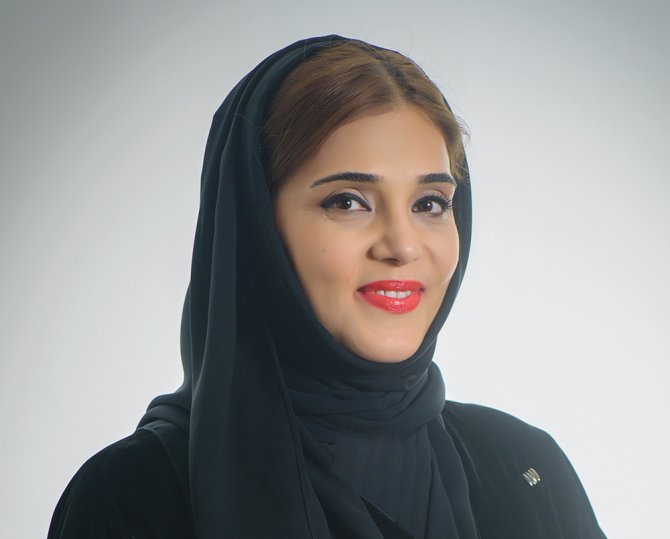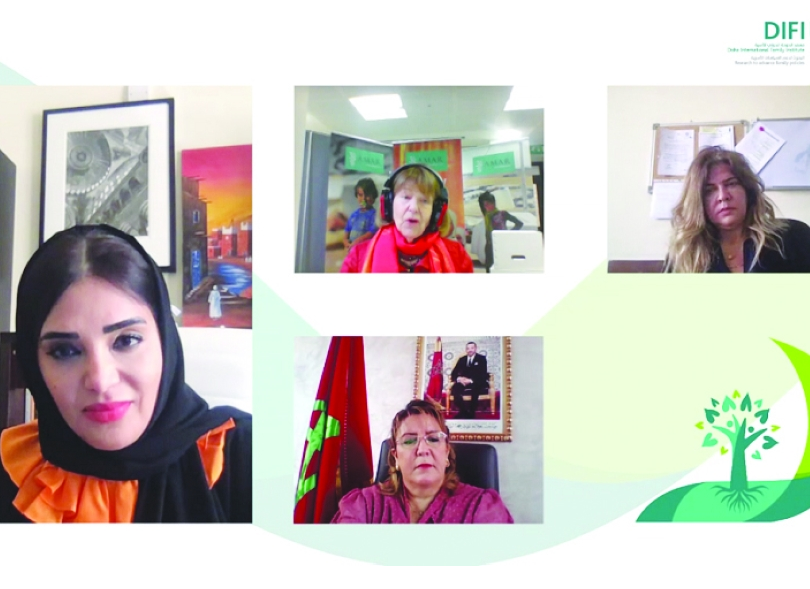A university professor born to a Qatari father and a Lebanese mother has be…

The Peninsula
Doha: Reflecting on COVID-19’s impact within the broader framework of an evolving professional landscape, the Translation and Interpreting Institute (TII), part of the College of Humanities and Social Sciences (CHSS) at Hamad Bin Khalifa University (HBKU), held its 11th International Translation Conference online recently.
Dr. Amal Al Malki, Founding Dean of CHSS, HBKU, introduced this year’s theme, “COVID-19 and Current Changes in Translation and Interpreting Studies”, linking to the ramp-up of digitized workplaces, artificial intelligence-based machine translation, collaborative translation platforms and blended learning since the pandemic outbreak.
Keynote speeches by leading scholars delved into human-machine relationships in translation; how translation has become a way to (re)connect during uncertain times; and the role and training of professional translators post-pandemic.
Panel discussions featuring academics and practitioners from more than 10 countries focused on COVID-19’s impact on the workplace, on T&I learning; and localization, social media, and audiovisual translation.
The panels were chaired by Dr. Ali Almanna, Associate Professor of Linguistics and Translation; Dr. Ahmed Alaoui, Assistant Professor of Translation Studies; and Dr. Amer Al Adwan, Assistant Professor of Audiovisual Translation.
HBKU faculty also contributed their interdisciplinary expertise, with Dr. Julie Boéri, Assistant Professor in Translation Studies at TII, and Dr. Deborah Giustini, Visiting Professor at CHSS, presenting a paper titled “Interpreters’ Narratives of the COVID-19 Pandemic: A Focus on Qatar”.
Following closing remarks by Dr. Hendrik Kockaert, Director of Translation and Interpreting Studies Department, TII, the conference wrapped up with a workshop-style webinar, “Introduction to the World of Interpreting.”
Commenting on the focus of this year’s event, Dr. Amal Al Malki said: “In its 11th edition, TII’s International Translation Conference has facilitated discussions that frame the impact of the pandemic, which has seen TII playing a major role in societal advancement and being used in several innovative ways, for example on social media.
“This shift also highlighted that there may be as yet unexplored opportunities stemming from accelerated digitalization that would also benefit from newer approaches to academic and training programs in line with the principles of access, equity, diversity, and inclusion. The discussions certainly provided much to reflect on as we continue our research at TII and academic institutions around the world, and we look forward to our next international biennial gathering in 2023,” she added.
Doha: Reflecting on COVID-19’s impact within the broader framework of an evolving professional landscape, the Translation and Interpreting Institute (TII), part of the College of Humanities and Social Sciences (CHSS) at Hamad Bin Khalifa University (HBKU), held its 11th International Translation Conference online recently.
Dr. Amal Al Malki, Founding Dean of CHSS, HBKU, introduced this year’s theme, “COVID-19 and Current Changes in Translation and Interpreting Studies”, linking to the ramp-up of digitized workplaces, artificial intelligence-based machine translation, collaborative translation platforms and blended learning since the pandemic outbreak.
Keynote speeches by leading scholars delved into human-machine relationships in translation; how translation has become a way to (re)connect during uncertain times; and the role and training of professional translators post-pandemic.
Panel discussions featuring academics and practitioners from more than 10 countries focused on COVID-19’s impact on the workplace, on T&I learning; and localization, social media, and audiovisual translation.
The panels were chaired by Dr. Ali Almanna, Associate Professor of Linguistics and Translation; Dr. Ahmed Alaoui, Assistant Professor of Translation Studies; and Dr. Amer Al Adwan, Assistant Professor of Audiovisual Translation.
HBKU faculty also contributed their interdisciplinary expertise, with Dr. Julie Boéri, Assistant Professor in Translation Studies at TII, and Dr. Deborah Giustini, Visiting Professor at CHSS, presenting a paper titled “Interpreters’ Narratives of the COVID-19 Pandemic: A Focus on Qatar”.
Following closing remarks by Dr. Hendrik Kockaert, Director of Translation and Interpreting Studies Department, TII, the conference wrapped up with a workshop-style webinar, “Introduction to the World of Interpreting.”
Commenting on the focus of this year’s event, Dr. Amal Al Malki said: “In its 11th edition, TII’s International Translation Conference has facilitated discussions that frame the impact of the pandemic, which has seen TII playing a major role in societal advancement and being used in several innovative ways, for example on social media.
“This shift also highlighted that there may be as yet unexplored opportunities stemming from accelerated digitalization that would also benefit from newer approaches to academic and training programs in line with the principles of access, equity, diversity, and inclusion. The discussions certainly provided much to reflect on as we continue our research at TII and academic institutions around the world, and we look forward to our next international biennial gathering in 2023,” she added.
Link to the article
You may also check
Considering the immense pressure youth around the world are facing – a…


